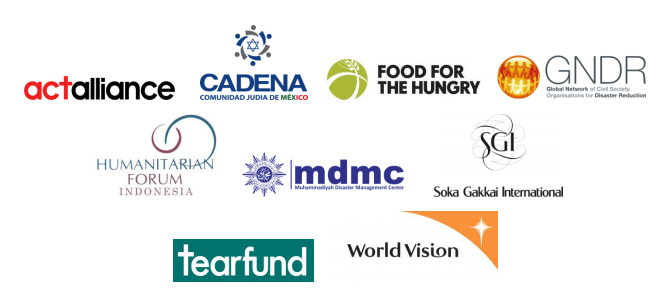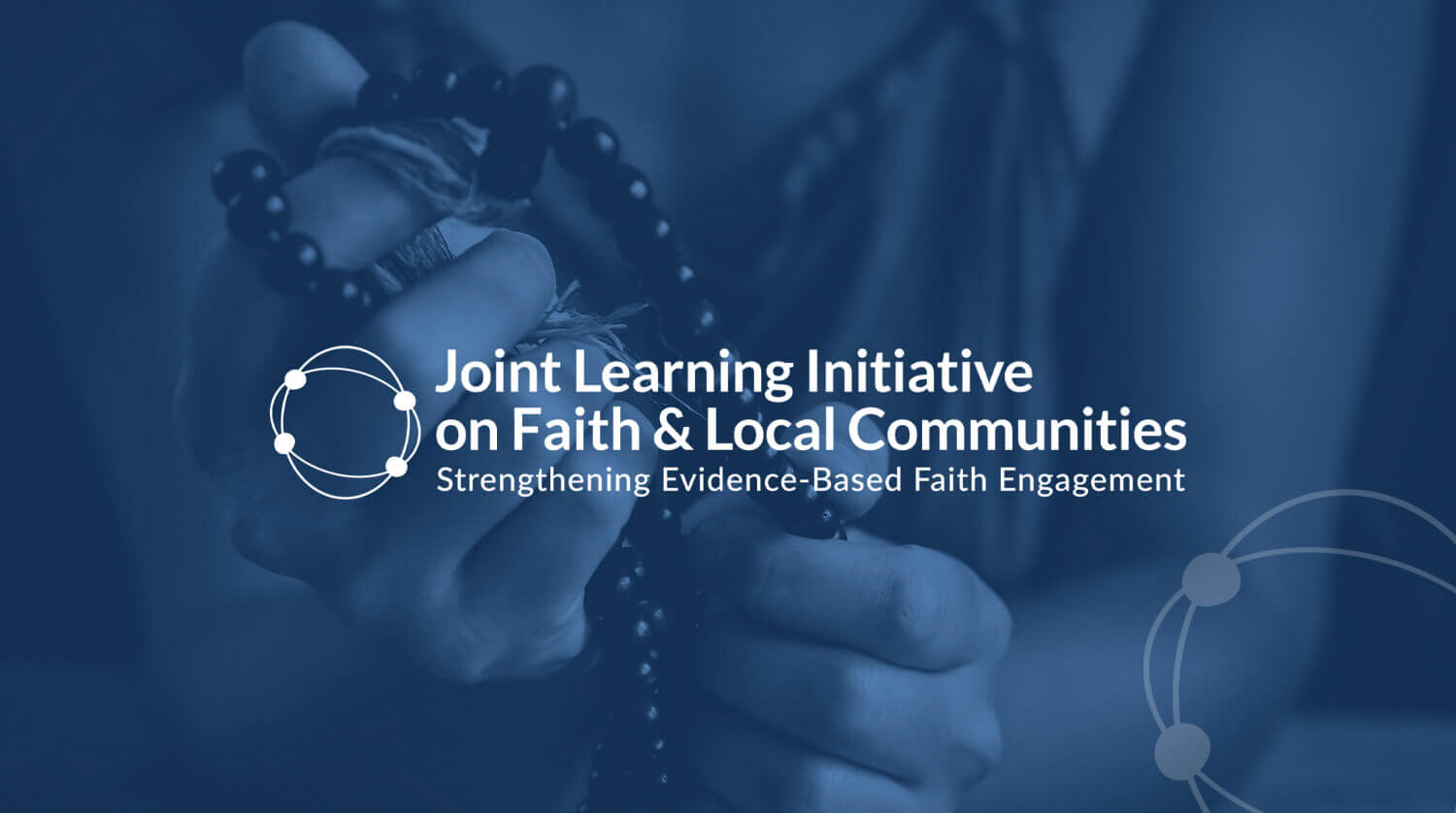Cancun Mexico
On May 23 ACT Alliance and Soka Gakkai International co-organized a pre-conference titled “Locally-led Disaster Risk Reduction by Faith-Based Organizations – Implementing the Sendai Framework.”
Faith-based and religions organizations gathered in Cancun Mexico to discuss faith engagement in implementing the Sendai Framework. JLI was represented by Soka Gakkai for the Refugees & Forced Migration Learning Hub. Both cohosts as well as some local implementing FBOs made presentations on best practices of locally-led DRR by FBOs in implementing the Sendai Framework.
Other presentations and statements from Global Platform
 Public Joint Statement of faith-based organizations to GP2017
Public Joint Statement of faith-based organizations to GP2017May 23, 2017, Cancun
We urge State parties to engage FBOs and LFCs in a meaningful and substantive way in implementing SFDRR
Specifically by:
- Collaborating with FBOs and LFCs and use their capacity to communicate to local communities to raise level of understanding and awareness on DRR and climate change (SFDRR priority 1);
- Involving FBOs and LFCs to help monitor DRR impact at household and community level based on the set of SFDRR indicators for purposes of better risk governance; (SFDRR priority 2)
- Using and encouraging the collaborative networks of LFCs/FBOs across the globe to respond to the impacts of disasters and climate change by raising investments for resilience at local, national, regional, and global level; (SFDRR priority 3)
- Allocating resources to FBOs and LFCs to develop and implement DRR measures, both in terms of risk mapping, prevention/mitigation and resilience building projects/activities, as well as preparedness activities and early action against disasters; (SFDRR priority 3)
- Engaging and supporting FBOs in relief and post-disaster recovery and rehabilitation to galvanize local humanitarian response / preparedness and to facilitate effective and efficient initiatives that will enable communities to BUILD BACK BETTER (SFDRR priority 4)
Local faith-based networks reach every corner of our communities and nations and are capable of contributing substantial material and social resources necessary for risk prevention, reduction and humanitarian action. Faith-based groups are key to the localization of risk reduction, resilience building and humanitarian action because they are among those at the first line of defense in preventing avoidable disasters. They are also among first responders in emergencies providing shelter during evacuation, basic needs (i.e. food, water, clothing, shelter) of those affected during emergencies, and social capital for healing and recovery.
Faith-based organizations (FBOs) and local faith communities (LFCs) can complement other aid sectors’ activity at the grassroots level, thereby contributing and acting as a vector to localize humanitarian response and preparedness, as well as enhance mainstreaming of risk reduction measures in recovery and development programming. Faith, in all its forms, constitutes a natural and important element in the lives of billions of people with over 84% of the world identifying with a religious group. Faith drives people to take action. During the Third World Conference on Disaster Risk Reduction, we have heard testimonies of communities that have relied on faith and faith institutions as part of their coping mechanism in times of disasters. Faith has enabled communities to become better stewards of their environment and has enhanced social capital through communication, sharing, and compassion for others. Faith has thus offered courage, comfort and hope.
Faith contributes to the coping and adaptive capacities of many people and can be a powerful element in reducing vulnerabilities and, thus, reduce disaster risk. It is an integral element that needs to be taken into account in disaster risk prevention and reduction.







